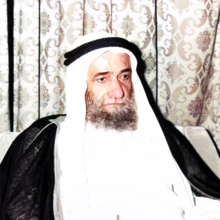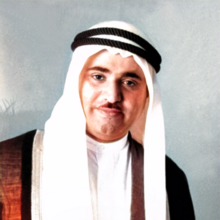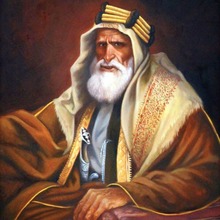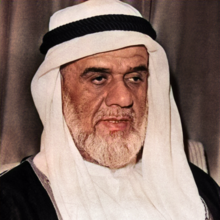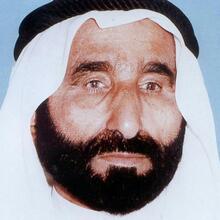 Khalifa bin Zayed Al Nahyan
1948 - 2022
Khalifa bin Zayed Al Nahyan
1948 - 2022
 Sabah Al Fatlawi
1950 - 2018
Iraqi general
Sabah Al Fatlawi
1950 - 2018
Iraqi general
 Sayed Yousuf Halim
1959 - 2022
Judge
Sayed Yousuf Halim
1959 - 2022
Judge
 Adnan Pachachi
1923 - 2019
Iraqi Foreign Minister and UN Representative
Adnan Pachachi
1923 - 2019
Iraqi Foreign Minister and UN Representative
 Zayed bin Sultan Al Nahyan
1918 - 2004
Former Ruler of AbuDhabi,Founding President of UAE
Zayed bin Sultan Al Nahyan
1918 - 2004
Former Ruler of AbuDhabi,Founding President of UAE
 Khalid bin Mohammed Al Qasimi
1931 - 1972
Former Ruler of Sharjah.
Khalid bin Mohammed Al Qasimi
1931 - 1972
Former Ruler of Sharjah.
 Ahmad bin Rashid Al Mualla
1902 - 1981
Former Ruler of Umm Al Quwain.
Ahmad bin Rashid Al Mualla
1902 - 1981
Former Ruler of Umm Al Quwain.
 Muzahim Saab Hassan
1950 - 2021
liaison with UN weapons inspectors
Muzahim Saab Hassan
1950 - 2021
liaison with UN weapons inspectors
 Nabil Maleh
1936 - 2016
Film director, screenwriter, producer
Nabil Maleh
1936 - 2016
Film director, screenwriter, producer
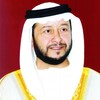 Sultan bin Zayed bin Sultan Al Nahyan
1953 - 2019
Chairman of the UAE FootballAssociation(1976-1981)
Sultan bin Zayed bin Sultan Al Nahyan
1953 - 2019
Chairman of the UAE FootballAssociation(1976-1981)
 Farooq Sheikh
1948 - 2013
Actor, film producer, and television presenter
Farooq Sheikh
1948 - 2013
Actor, film producer, and television presenter
 Zayed bin Khalifa Al Nahyan
1835 - 1909
the first Zayed of Abu Dhabi
Zayed bin Khalifa Al Nahyan
1835 - 1909
the first Zayed of Abu Dhabi
 Sheikh Maktoum bin Rashid Al Maktoum
1943 - 2006
first and third prime minister of the United Arab
Sheikh Maktoum bin Rashid Al Maktoum
1943 - 2006
first and third prime minister of the United Arab
 Feras Saied
1981 - 2015
Professional bodybuilder
Feras Saied
1981 - 2015
Professional bodybuilder
 Rashid bin Saeed Al Maktoum
1912 - 1990
Former Ruler of Dubai
Rashid bin Saeed Al Maktoum
1912 - 1990
Former Ruler of Dubai
 Saqr bin Mohammed Al Qasimi
1918 - 2010
Former Ruler of Ras Al Khaimah.
Saqr bin Mohammed Al Qasimi
1918 - 2010
Former Ruler of Ras Al Khaimah.
 Mohammed Bin Hamad Al Sharqi
1908 - 1974
Former Ruler of Fujairah
Mohammed Bin Hamad Al Sharqi
1908 - 1974
Former Ruler of Fujairah
 Khairy Alzahaby
1946 - 2022
Novelist, thinker, historian, columnist
Khairy Alzahaby
1946 - 2022
Novelist, thinker, historian, columnist
 Fadhil Barwari
1950 - 2021
general and liaison with UN weapons inspectors
Fadhil Barwari
1950 - 2021
general and liaison with UN weapons inspectors
 Pervez Musharraf
1943 - 2023
Chief of Army Staff and 10th President
Pervez Musharraf
1943 - 2023
Chief of Army Staff and 10th President
 Khalid bin Sultan Al Qasimi
1980 - 2019
Qasimi fashion label
Khalid bin Sultan Al Qasimi
1980 - 2019
Qasimi fashion label
We Need -- admin in


